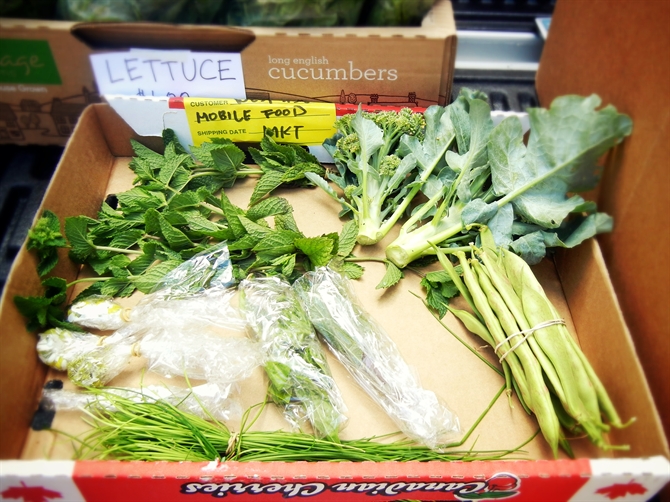As you have probably gathered by now, eating local is a fabulous way to practice sustainable and nutritious solutions to the epidemic of corporate and industrialized food systems. Highly processed and transported foods, owned by giant multinational corporations, come at the expense of our bodies, labour, human rights, the air we breathe, and so much more. How could anyone living in this beautiful Coast Salish Territory not include local foods with their every meal?
The answer is simple — lack of equal access. Even the increasing abundance of local and farm-fresh produce has not emerged unscathed by food insecurity, and this is especially evident in food deserts. Food deserts are neighbourhoods or regions with little or no access to nutritious and affordable food. You can’t blame anyone for not eating local when finding food at an equitable price is hard enough.
Picture a residential street with a plethora of expensive and trendy clothing and shoe boutiques, but no affordable grocery stores. Not to mention retail food outlets within walkable distance for seniors and other individuals who have mobility barriers. This is the reality for many in the South Granville and surrounding areas of Vancouver.
Thankfully, this year we saw the emergence of a pilot project, the Westside Mobile Food Market. It was a joint effort of the South Granville Seniors Centre and the Westside Food Collaborative. Active from July 18 to the end of September, its vision was to fill the need — where little was being done — for seniors and other residents who lack access to affordable produce in the area. The Market ran Thursday afternoons at both the South Granville Seniors Centre and Marpole Place Neighbourhood House.
As a new staff member at the South Granville Seniors Centre, I was initially surprised by the extent of food insecurity in a region often seen as a district of wealth. But like all regions in Vancouver, the revamping of neighbourhoods in favour of major development has left affordable independent businesses to all but wither.
Another important aspect of the Mobile Market was in the implementation of the Plenty Campaign, which was a way for community members to get involved in raising awareness and trying to change the way we see food policy in the city. As the Mobile Market is a wonderful approach to food insecurity, but change on a systemic level is needed in the fight for food justice and providing affordable, nutritious and of course local, food to everyone.
Photo: www.plantednetwork.ca




